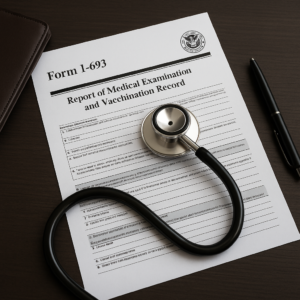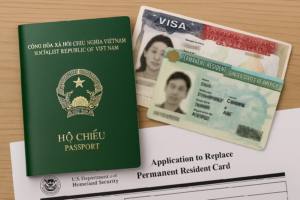With the U.S. Presidential Election just days away, American citizens in the United States and abroad will take part in electing the 47th President of the United States.
Although the current front runners are Vice-President Kamala D. Harris for the Democrat Party and former President Donald J. Trump for the Republican Party, other third-party candidates are also running. These candidates include Green Party Candidate Jill Stein, M.D and former Harvard University Professor and Princeton University Emeritus Cornel West.
In order to vote in the Presidential Elections, you must be a U.S. citizen either by birth or through naturalization.
You must be at least eighteen (18) years of age by election day although you may be able to register to vote before election day if you will be 18 years old on election day. Please confirm with your state requirements at https://www.usa.gov/voter-registration. If you have questions about whether you may vote in your state, contact your local county election officials where you wish to register and vote.
Eligible voters in many states have multiple options to cast their ballot:
- Vote in person on election day at your designated polling location;
- Vote early, in-person before election day at your designated polling location;
- Request for a mail-in/absentee ballot if available to vote by mail. More information can be found at https://www.usa.gov/absentee-voting.
For U.S. citizens living overseas in Vietnam, the Philippines and Taiwan, and have already received their absentee ballots, options are available.
- U.S. citizens residing in the Philippines who have already received their absentee ballots may drop their sealed ballots off at the U.S. Embassy in Manila or the Consular Agency in Cebu. More information can be found at https://ph.usembassy.gov/voting/.
- U.S. citizens residing in Vietnam may drop their absentee ballots either at the U.S. Consulate in Ho Chi Minh City or the U.S. Embassy in Hanoi. More information can be found at https://vn.usembassy.gov/voting/.
- U.S. citizens in Taiwan may drop their absentee ballots off at the American Institute in Taiwan offices either in Taipei or Kaohsiung. More information can be found at https://www.ait.org.tw/return-your-voted-ballot-now/.
U.S. citizens overseas may also mail their ballots using their local post office (i.e. PhlPost, Vietnam Post, Chunghwa Post, etc.)
For more information, contact us at info@enterlinepartners.com
ENTERLINE & PARTNERS CONSULTING
Ho Chi Minh City, Vietnam Office
146C7 Nguyen Van Huong St, Thao Dien Ward,
District 2, Thu Duc City
Ho Chi Minh City, Vietnam
Tel: +84 933 301 488
Email: info@enterlinepartners.com
Facebook: Enterline & Partners – Dịch vụ Thị thực và Định cư Hoa Kỳ
YouTube: @EnterlineAndPartnersConsulting
Website: http://enterlinepartners.com
Manila, Philippines Office
LKG Tower 37th Floor
6801 Ayala Avenue
Makati City, Philippines 1226
Tel: +63 917 543 7926
Email: info@enterlinepartners.com
Facebook: Enterline and Partners Philippines
Website: https://enterlinepartners.com/language/en/welcome/
Copyright 2024. This article is for information purposes only and does not constitute legal advice. This article may be changed with or without notice. The opinions expressed in this article are those of Enterline and Partners only.








